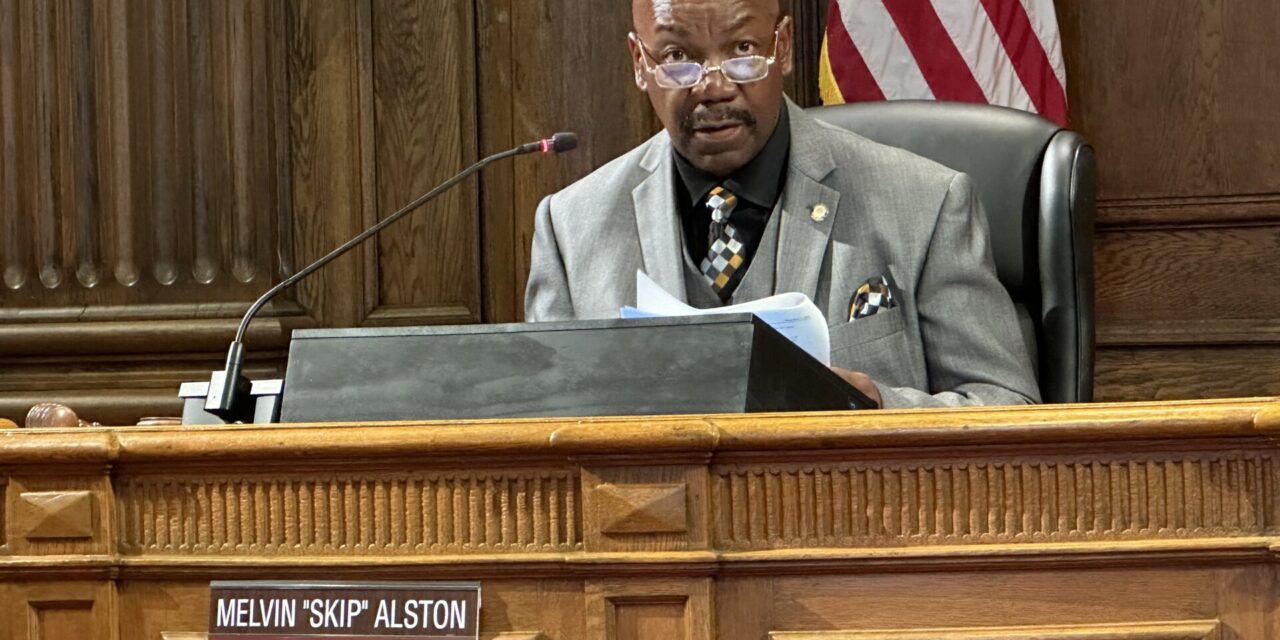Local leaders are getting more and more concerned about Guilford County’s lack of adequate housing to handle the massive influx of people expected to flock to the area over the next decade and beyond, and Chairman of the Guilford County Board of Commissioners Skip Alston said this week that he had called and held a recent large meeting of multiple stakeholders and players – including local home builders, county planners and other county staff – that really drove home the point.
It’s probably overly dramatic to call the situation an “emergency” since it’s been brewing for years – and that word comes from the Rhino Times rather than rom county officials – however, Alston said the meeting, which was held last week in the Carolyn Coleman conference room in the Old Guilford County Court House in downtown Greensboro, made it crystal clear to everyone in the room that the county and the cities and towns within it are facing a massive housing challenge.
Alston said estimates provided at the meeting were that Guilford County would need 97,000 new housing units in the next five years to meet future demand. He said he didn’t know if that gigantic number was achievable, but it was the number cited.
The meeting wasn’t open to the public since it only included two county commissioners: Chairman Alston and Vice Chair Carlvena Foster. When five or more of the nine commissioners meet, the meeting must by law be open to the public. Meetings of this sort are more organizational and meant to bring together many of the key players in the housing market in order to begin to work out solutions and map out effective long-term strategies.
Alston said he’s now calling for a major summit in November – after the Greensboro elections – with the mayor of High Point, the new mayor of Greensboro, city managers and planning staff from the cities, area builders, the county manager, top county planning staff and others who need to be involved.
Alston told the Rhino Times that this first meeting was meant largely to determine who should take part in the November housing summit and future meetings to help address the crisis.
“Everybody has to be on the same page,” Alston said.
Alston said that some of those at the initial meeting this month were Herb Parks, D.R. Horton and about a half dozen other builders along with the county, top county staff and planning staff.
Other groups, like the Triad Real Estate and Building Industry Coalition (TREBIC), should also get involved with the effort. Alston said he’s spoken with Jon Hardister, the head of TREBIC, and Alston said Hardister had expressed a major desire to be a part of the effort.
Alston said that, with the addition of JetZero to the mix of big-time companies opening shop in Guilford County in the future, and other major prospects in the pipeline, it was becoming clear that, as chairman of the county’s Board of Commissioners, he felt it imperative he take the lead on this and help bring together other players and officials in the area who can help address the problem.
Alson said that hearing estimates that nearly 100,000 new homes would be needed in the coming decades was a real eye opener and wake up call. He said he’d been speaking with prominent builder Herb Parks for years about the need to do something like this.
He added that some real progress was made even at this initial meeting of the minds.
“They came up with some good ideas,” Alston said.
To take one example, he said, the permitting process was often extended because individual inspectors were holding off contacting builders about issues until a final report was filed. For instance, water and sewer related concerns may be flagged early in the permitting process but not get reported to the builder until electrical and other reviews or inspections were performed. If builders, going forward, are told about concerns as soon as they arise then the builders can address them immediately.
Alston said that months off the permitting process – which he said now may take about nine months – can be removed from the timeline by incorporating strategies meant to speed up the process.
Alston also said plenty of other changes need to be agreed upon and made by local leaders and their boards. There may, for instance, be a need for more planning staff to address the matter.
“Everyone knows about the problems,” Alston said of the often slow building permitting and inspection process.
In the past, developers in the city and the county have expressed issues with the length and detail of the permitting process. Alston said that, after hearing ideas expressed in the meeting, he’s confident the process can be greatly sped up while maintaining safety and other code standards.
Greensboro Mayor Nancy Vaughan told the Rhino Times recently that, even though the City of Greensboro has entered into a plan to build 10,000 new homes by 2030, she didn’t think that would be enough.
The City of Greensboro’s current big housing initiative is the “Road to 10,000” plan, which aims to increase housing capacity by supporting the creation of 10,000 new housing units by the end of the current decade. The initiative promotes the development of both affordable and market-rate housing by working with public and private partners and helping provide resources for projects like new build-to-rent townhome developments.
The city also continues to implement its existing 10-year Housing GSO plan that’s designed to foster affordable and accessible housing. In addition, Greensboro offers various programs like the Lead-Safe Housing program for homeowners.

